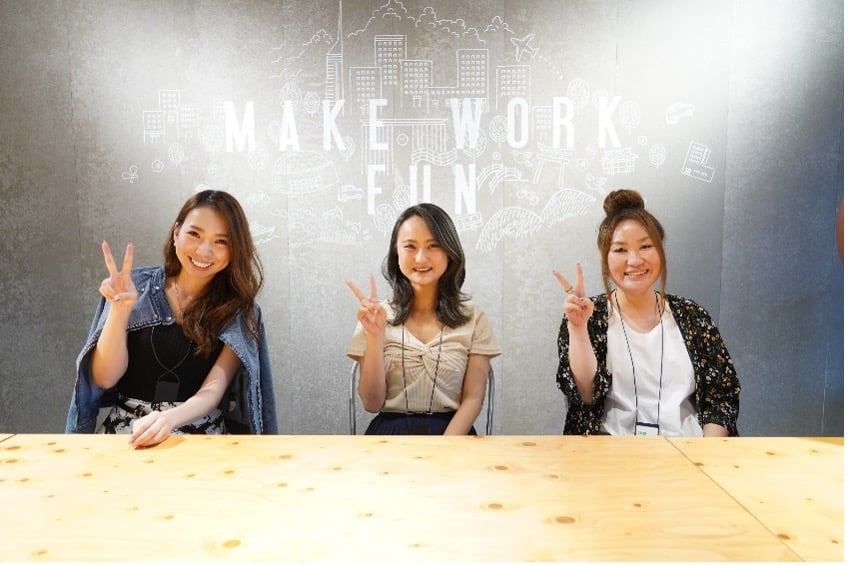【Engineer Interview】Technological Curiosity × Culture: The Development Department Head Talks about LINE Fukuoka’s Development Organization
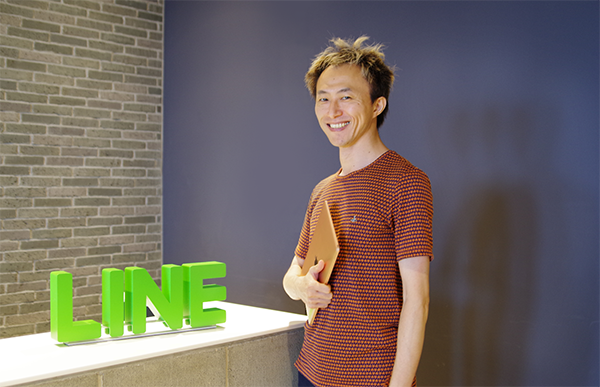
[Notice] Effective October 1, 2023, LINE Fukuoka has changed its company name to LY Communications. Articles published on or before September 30, 2023 were written with our former company name.
LINE Fukuoka’s Development Department creates services that impact users globally from Fukuoka. The department has released the LINE Creators Market app, and is also engaged in the development of LINE-related services such as LINE Part Time Job.
In this interview, we hear from department head Mr. Atsushi Wada about the kind of initiatives LINE Fukuoka’s Development Department has pursued over the past several years since its start in 2013, and the current state of the Development Department.
【Brief Biography】
Mr. Wada had planned to major in law at university, but realized midway through that he was not suited for it. Remembering that he had done some programming in high school, he got a job at an SI company conducting development, including using Java to webify banking systems.
After gaining experience investigating and writing Java Script Faces (which was in the specification planning phase), he started his own company and set out on his own.
While doing consigned development, he took on the challenge of service development but suffered several failures.
Mr. Wada joined LINE Fukuoka in February 2014. As Development Department Head, he has been involved with the establishment and operation of the organization from the very beginning. His hobby is playing the guitar, and after 30 years, he still considers himself a beginner.
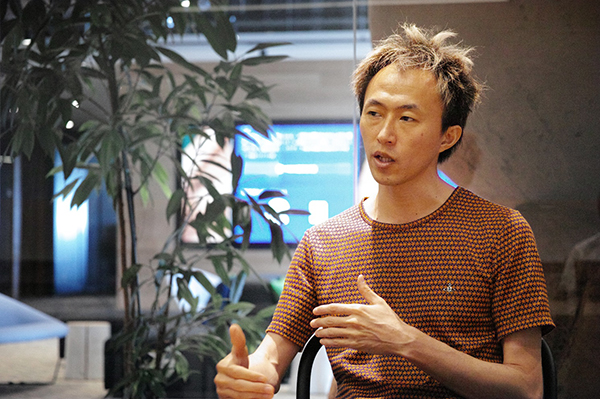
What kind of organization was the Development Department at its inception?
There was an engineer meet-up around Fukuoka where I had the chance to talk to Mr. Tomohiro Ikebe, LINE’s Service Development Executive. I remember feeling inspired by the many things we had in common, from the aspects we valued in the engineer recruitment process to test methods and management policies for engineer organizations. At that time, I was running my own company, but the timing and several other factors fell into place, and so I joined LINE Fukuoka in around February of 2014.
Initially, there was no development organization in LINE Fukuoka, and not even a development environment in place: I had to build it on my own from the bottom up. I started by first facilitating the use of development tools used by LINE (Tokyo) here at LINE Fukuoka and relaying the specs of machines used in development. Concurrently with that, I was also in charge of recruitment-related activities to hire more development team members.
At the time, LINE Fukuoka had around 180 employees, and was just launching operation work LINE-related service customer support and QA.
About three months after starting recruitment activities, a few engineers joined the company, and we were able to begin working on some projects, the first of which was a feature addition to an existing LINE-related service. So that is where the development work of LINE Fukuoka started from.
Please tell us about service development at that time.
We first began participating in development by adding features to existing services in the operation phase like LINE Fortune and LINE Creators Market, and gradually took over developmental tasks for these services. For the first year, we only had about 10 engineers, so two or three of us were in charge of each project. LINE Part Time Job was the first development project that was newly released from LINE Fukuoka. From development to release, we did everything while communicating remotely with planners in the Tokyo office. I can say this now, but from the start of the project to its release, we actually only had two months, and it was quite a brutal schedule. On top of that, we were not yet accustomed to doing remote development, so we had a lot of difficulty coordinating specifications and such with the planners.
Projects with determined release schedules are rare in the company, but conversely, that we were able to debate about the service’s essential features, eliminate the unnecessary ones, and filter out all but the most simple in a limited time span was a priceless experience. I think were able to undertake the challenge with extraordinary focus.
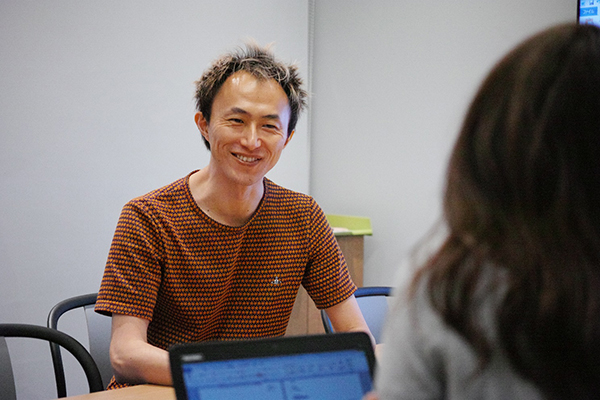
Please tell us about the transition to services being developed at LINE Fukuoka.
Up until that point, many of our development projects were for existing services we had taken over, but projects like the LINE Part Time Job and LINE Creators Market apps released directly from LINE Fukuoka have increased.
For example, we developed the “LINE Creators Studio” app, which lets users to create LINE Stickers using just their smartphone. Development of this app started as a new project with more than 10 server-side and client-side team members.
Increasing the number of engineers involved on a single project was costly in terms of communication with fellow engineers, but on the other hand prompted debate, which I feel resulted in a better service.
In addition, we do not fix responsible engineers (REs) for each of the features being developed, and have instead adopted a style of randomly determining REs on a ticket basis. This means that REs need a firm grasp of the overall specifications, and development speed drops slightly, but conversely, we can avoid the risk of creating a dependency bottleneck.
Please tell us about the current organizational configuration.
Application development engineers (server-side and client-side) are at the core of our organizational configuration, but we also have front-end engineers, a Data Analysis Team comprised of machine learning engineers and data scientists, and a Development Support (DevOps) Team that constructs mechanisms for running each project more efficiently.
Since we have an in-house private cloud, we have also started recruiting infrastructure and security engineers to work on its development.
Thinking of overall optimization, I want to create additional teams for highly specialized fields in order to further strengthen our organizational structure.
Over the past four years, the Development Department’s one-man team has grown into a unit that is home to roughly 100 engineers (more than half of whom are from overseas) with diverse backgrounds. I think the appeal of LINE Fukuoka’s Development Department is that since we are home to engineers with various experiences and knowledge, team members are exposed to new viewpoints, and can work with global perspectives while in Fukuoka.
In addition, since there are now more English speakers, the company provides them with the opportunity to study Japanese as well as other follow-up support. English study support is also given to our Japanese engineers, and the company supports our efforts to make communication even a little smoother. Our engineers embrace diversity, and many of them enjoy the changes it brings while adopting a stance that lets them adapt.
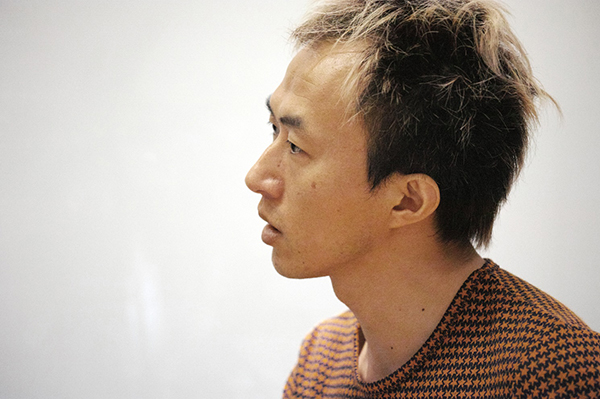
Compared to four years ago, what has changed the most?
What has not changed is our consistent undertaking of new development with the spirit of a startup, but as an organization, I think our role and support have changed.
In terms of our role as an organization, as I mentioned, changes to the services we develop and the organizational structure have been drastic. I do not think there are many companies around Fukuoka with segmented special units like our Data Analysis Team and Development Support (DevOps) Team, so I think LINE Fukuoka’s environment is appealing to engineers hoping to further utilize that type of expertise.
We have adopted the discretionary work system as our working style, so everyone has flexibility with their time. Apparently we appear rather busy, but average monthly working hours are basically around 150~160.
Of course since we conduct service development while integrating much debate and many new viewpoints, depending on the project, there have been periods of change, but compared to four years ago, we have achieved quite a stable work environment.
Naturally, our salary/benefits standards are the same as those for the Tokyo office; a new university graduate in a technical position would receive a starting annual salary of 5 million Yen, and we do offer more than 6 million Yen depending on the candidate’s skill and experience.
Advantageous salary and benefits are not limited to bachelor’s or master’s degree graduates, but are offered to candidates whose engineering skills are recognized as being sufficient. There are also incentives/plans* available depending on the company’s performance/status.
*In 2017, Permanent Employees were awarded employee stock options.
In terms of work, development of LINE-related service projects slated for new release and even the LINE messenger itself has increased. The scope of challenges we can take on has broadened, and I think there are more opportunities for engineers to hone their skills or take the next step in their careers.
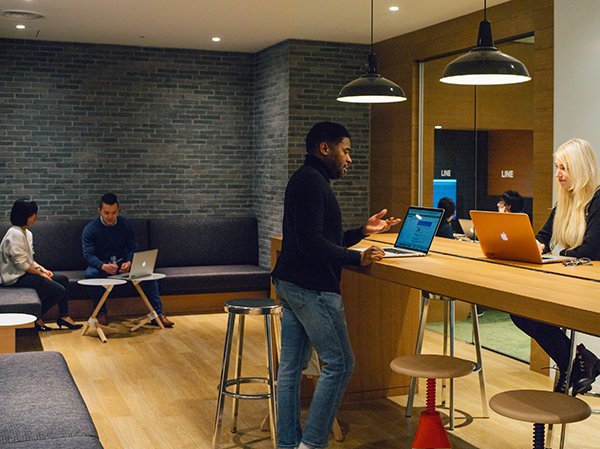
What is LINE Fukuoka’s engineering culture like?
In our twice annual evaluations, we conduct a 360°, multi-faceted evaluation called the “C-Review” in addition to an evaluation from an achievement standpoint. In this C-Review, supervisors and other engineers give an individual feedback about their performance on the job.
In conjunction with the evaluations, we ask members about what they want to achieve and their wishes. What I find interesting is that among these wishes, there are engineers who (in addition to their ordinary work) are always thinking about what they are going to develop at that year’s Hackathon. (Laughs)
Every year at LINE Fukuoka, we put ordinary work on hold for two days and do an in-house Hackathon*. This is an event in which engineers freely create a product or service they want to develop, and take turns presenting their achievements.
*In-house Hackathon Report Blog Post
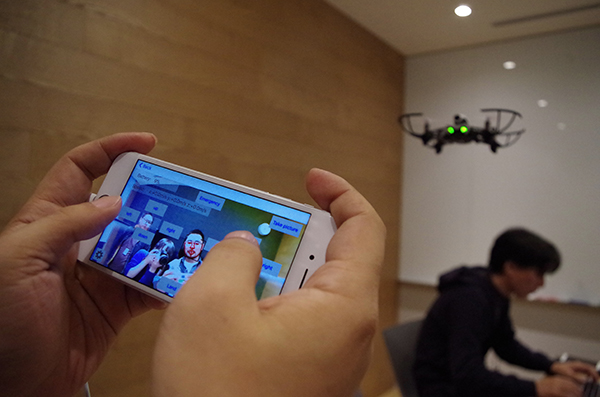
*Photo from LINE Fukuoka’s Annual In-house Hackathon
As an engineer, what is the appeal of being in “Fukuoka”?
In recent years, Fukuoka has seen a rise in IT and startup companies, and compared to before, I think more engineers are returning to Fukuoka from jobs in larger cities. If someone from outside of the prefecture had considered a career as an engineer a few years ago, I do not think there were many opportunities for them in Fukuoka; recently, however, there have been more people transferring to LINE Fukuoka from not only within but also outside of Japan, and I think that has created a fantastic environment. Engineer study sessions and meet-ups around Fukuoka are booming, and there are many chances for new discoveries or to be inspired, regardless of whether in-house or outside of the company.
Also, I know this depends on the person, but if you ask engineers who have come to Fukuoka from overseas how they find living in the city, many of them will tell you that they feel close to both the city and nature, and that the pace of life is just right.
Speaking honestly from an engineering viewpoint, I think the appeal of Fukuoka is its livability and environment, since our engineers can do the same job as other engineers throughout the world no matter where they are.
What kind of intentions do you hope engineers joining the company will have?
I hope people with insatiable technological curiosity who feel that taking on new challenges is fun will join the company.
Of course I think their skill set is important, but so is having a strong interest in the services themselves and service provision from a user’s viewpoint, as is making something a personal priority and striving to try to improve it.
In order to progress with a single project, engineers debate about the plan or design and make suggestions about how to improve the service. Comparing it to learning a new language, at first someone may not be that good at it, but they can continue to take on the challenge until they are fluent; I think people who can enjoy these kind of conditions would be well suited to LINE’s culture.
Actually, a majority of our engineers are involved in the recruitment interviews, and are committed to the task if it means we can recruit even one more great engineer. They feel that recruitment activity leads to the growth of LINE Fukuoka’s Development Department and LINE businesses, and it’s because they make this a personal priority that they take the initiative to participate in interviews and passionately relay LINE’s culture to candidates. They proactively make appearances in opportunities for exchange with engineers from outside the company, which is a great stance to take!
When I have 1-on-1 meetings with our engineers, the last question I always ask them is, “Are you having fun?” This is because I want the company to be a fun place, and I want them to have a sense of fun not only in their professional but also in their personal lives. I feel that the fact we have so many engineers who are interested in engineering technology (including LINE service development, the annual Hackathon, etc.) and other team members, recruitment activity, or people, and think it’s fun to undertake a challenge as a team is what make us LINE, and also defines our engineering culture.
We recruit engineers year-round, so if you are interested, please apply! Even if you are unsuccessful in your first attempt, we have a system that lets you re-apply one year later, and I hope you will keep trying until you are hired!
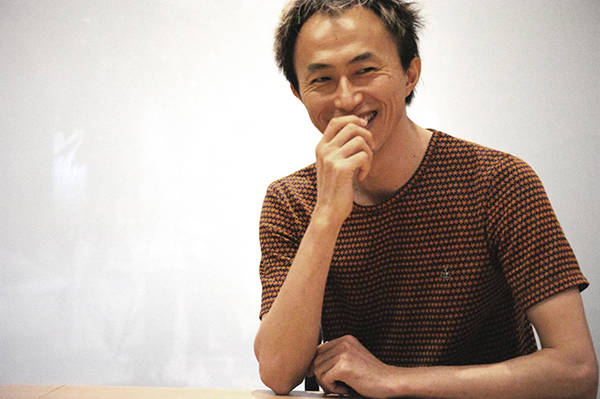
From Developer Meet-ups and various events to recruitment screening, we offer a variety of opportunities to get to know LINE Fukuoka’s engineers, so please join us!
<Engineer Recruiting Information>
【Career Opportunities】
https://linefukuoka.co.jp/ja/career/list/
【See below for open positions】
Development Engineer
https://linefukuoka.co.jp/en/career/list/engineer/development_engineer_en
Front-end Engineer
https://linefukuoka.co.jp/en/career/list/engineer/frontend_engineer_en
Machine Learning Engineer
https://linefukuoka.co.jp/en/career/list/engineer/machine_learning_engineer_en
Data Scientist
https://linefukuoka.co.jp/en/career/list/engineer/data_scientist_en
Related Articles
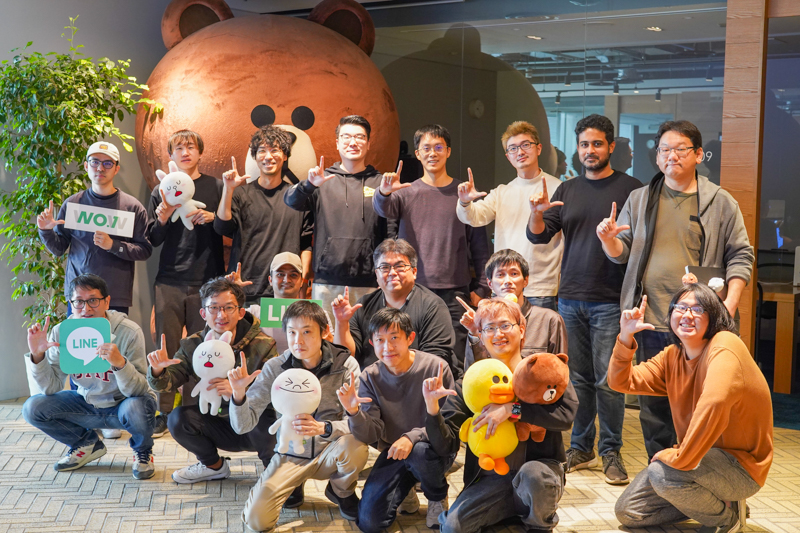
[Event Report] Offline "Office Days" for a Fully Remote and Diverse Development Team
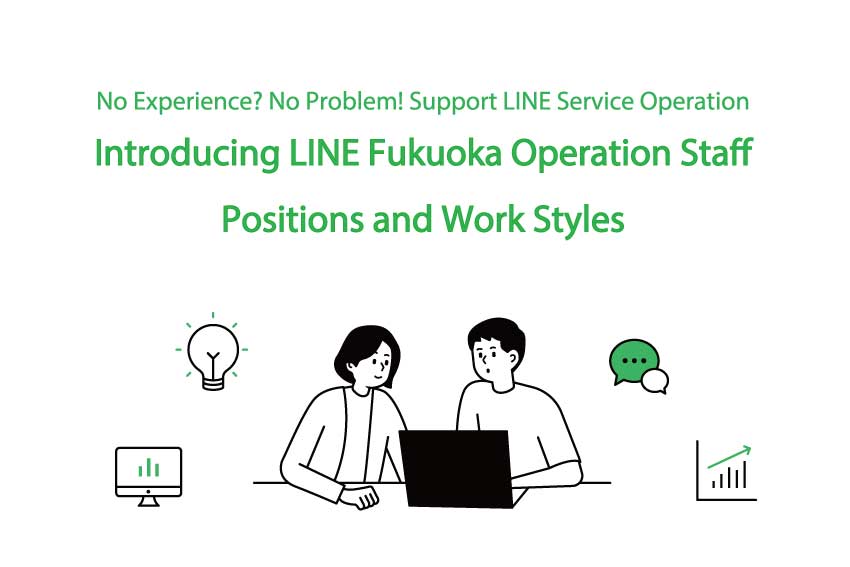
No Experience? No Problem! Introducing LINE Fukuoka Operation Staff Positions and Work Styles
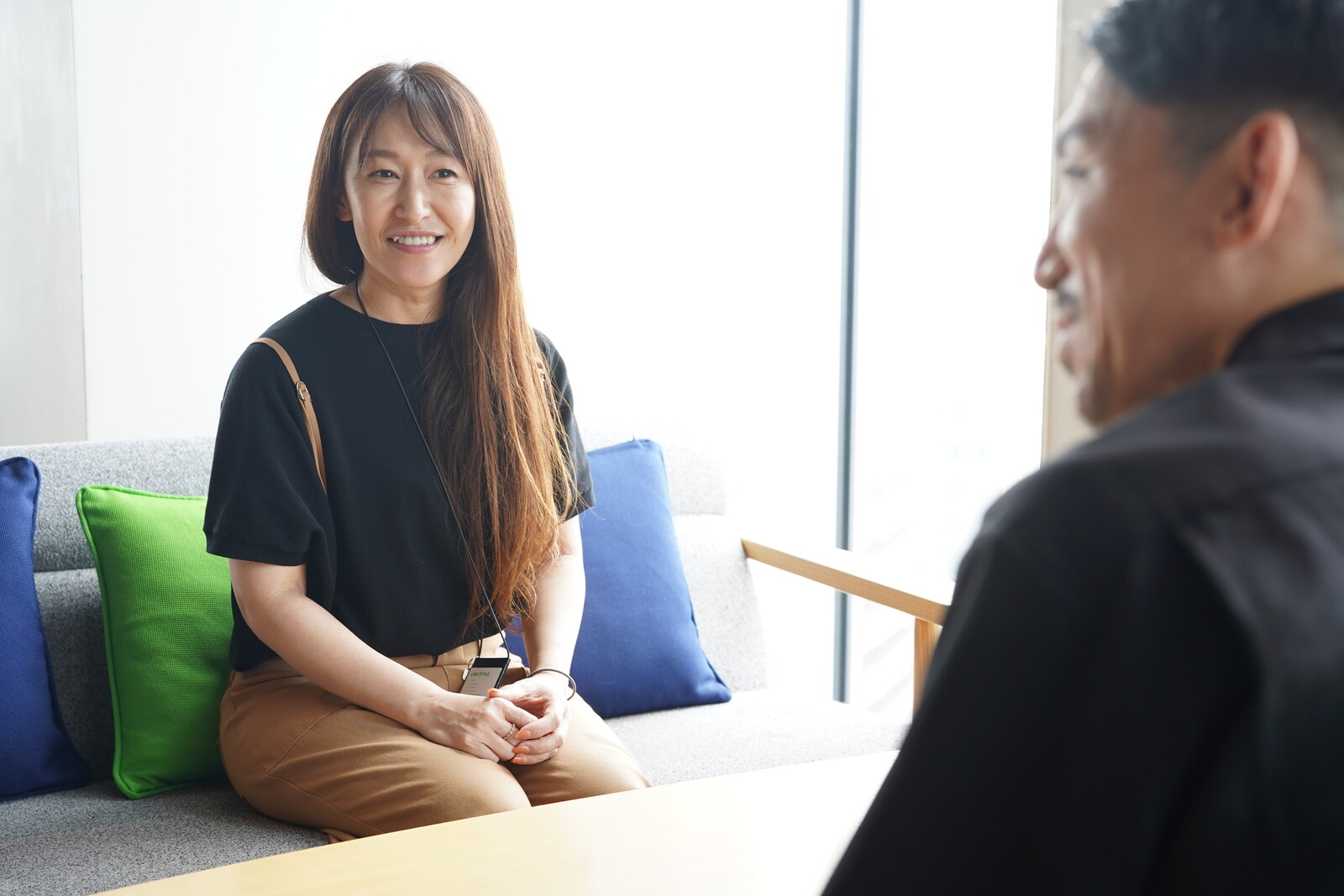
Introducing the Departments that Support the Growth of LINE Search!
